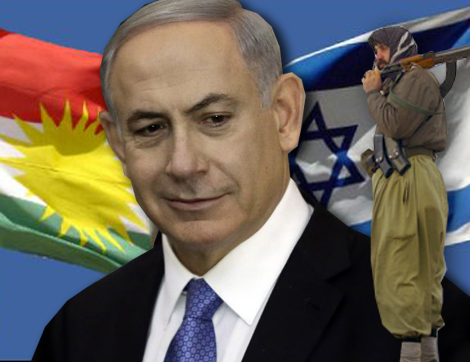
• Israelis convince Washington that Kurds can do the fighting and dying in war against ISIS.
By Richard Walker
The United States has persuaded its North Atlantic Treaty Organization (NATO) allies to provide a steady flow of arms to the Kurds in Iraq after Israel convinced Washington that these northern forces are pivotal to the defeat of Islamic State (ISIS).
Israel has been arming the Kurds for many years. It also has special forces trainers on the ground advising them. While it is generally accepted the Kurds can be a major bulwark against ISIS advances in northern Iraq, there is also a Kurdish population in Syria battling ISIS and its affiliate, the al-Nusra Front.
Israel plans to continue to pressure the U.S. and its NATO allies to build the Kurds into an army, but it has a separate agenda.
For more than a decade, the Israelis have been persuading Kurdish leaders to establish an independent Kurdistan in northern Iraq. For Israel, it would mean having a pro-Israeli, Sunni Muslim state sandwiched between Hezbollah in Lebanon and the Shiite majorities of Iraq and Iran.
Israel’s reasoning is shaped by the fact the Kurds are a population of upwards of 35 million spread across Syria, Turkey, Iran, Iraq and Armenia.
In the past, the Mossad has trained Kurdish groups in Iran to carry out terrorist bombings against the government in Tehran.
The largest Kurdish population of 15 million is in Turkey, but the most powerful Kurdish group, which is half that number, is based in northern Iraq where it has a sizable arsenal and controls the rich oil fields around Kirkuk.
While Kurds have embraced Christianity and Judaism, the majority are Sunni Muslims. As Sunnis, they are expected to be more aligned religiously with Arab states like Saudi Arabia with which Israel has been forging a secret pact to undermine Iran. The Kurds have always practiced a moderate form of Islam and have tended to focus more on their nationalistic goal of an independent Kurdistan that could attract Kurds from across the region, a prospect that worries Turkey.
Around 20% of Turkey is Kurdish, making Ankara fear its Kurds will sometime in the future find the means to militarily break away and forge a partnership with an independent Kurdistan.
The role of the Kurds in fighting ISIS in Iraq has been crucial, but perhaps not as significant as the role played by Iranian-backed Shiite militias, which have had striking successes against ISIS. The success of the Kurds in recent battles has only been made possible with the help of U.S. airpower.
A source close to NATO told this writer that Turkey refused to allow secret arms shipments to pass from Bulgaria through Turkey to the Kurds in Iraq. The decision angered Washington and Israel. A $150 million shipment of arms turned away by Turkey contained Russian-made weapons favored by the Kurds. Typically, their arsenal is made up mostly of AK-47 rifles, rocket launchers, surface-to-air missiles and aging Soviet howitzers. The Kurds have asked Washington for advanced weaponry, but so far have been denied it, possibly because of pressure on NATO from the Turks who have argued that any powerful weapons the Kurds receive might be used later by the Kurds in a war with Turkey.
Israel is, nevertheless, determined to win the argument in Washington for the Kurds because it believes the creation of an independent Kurdish state with ties to Tel Aviv is a foregone conclusion.
The Jerusalem Post has also talked about the Kurds being the new political force in the Middle East that will form a distinct, mutually beneficial relationship with Israel.
Richard Walker is the pen name of a former N.Y. news producer.


The underlying problem with the Arabs is their mindset. Every problem that they have is “because of U.S. and Israel.” They just cannot suit in the type of democracy and freedom that we have in the West. On the other hand you have the Kurds with their strong relationship with Israel, the only democracy and functioning in the Middle East.
Long live Israel and long live Kurdistan.